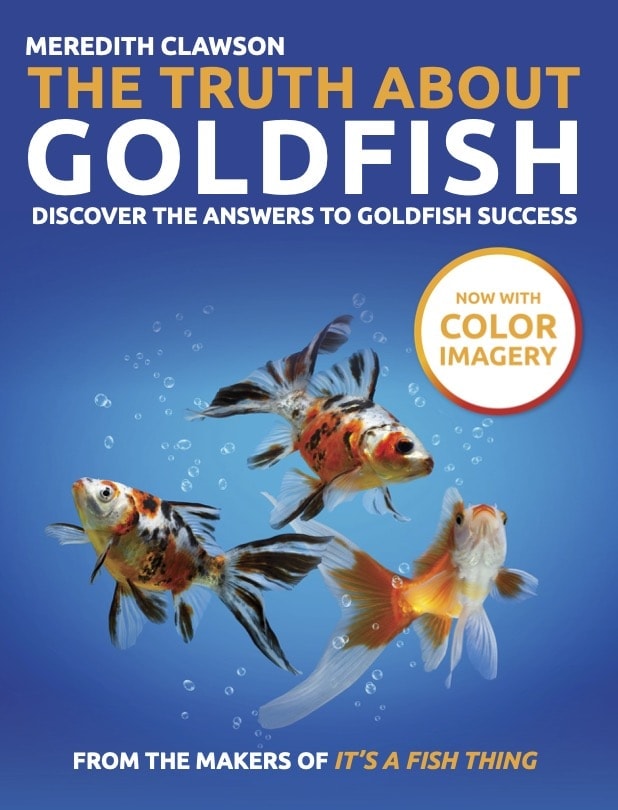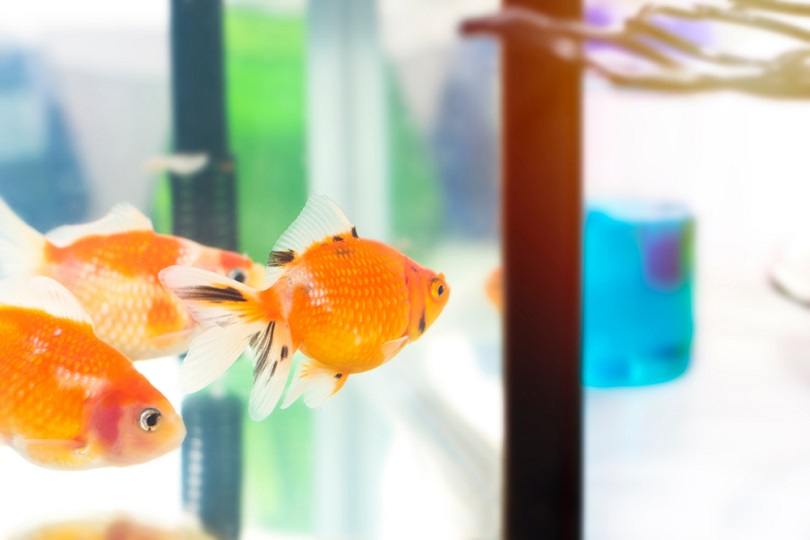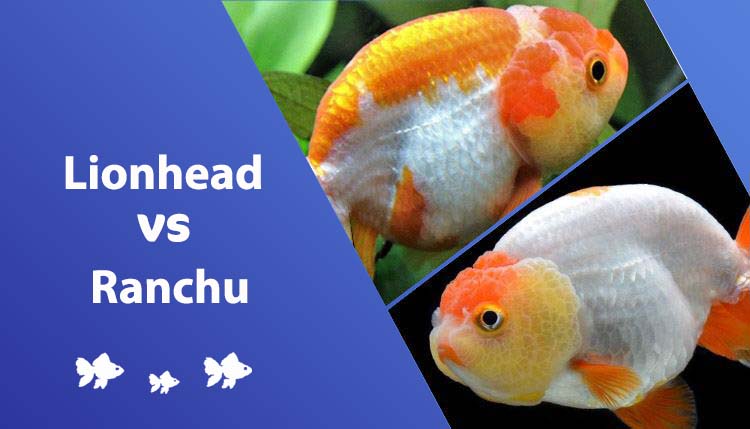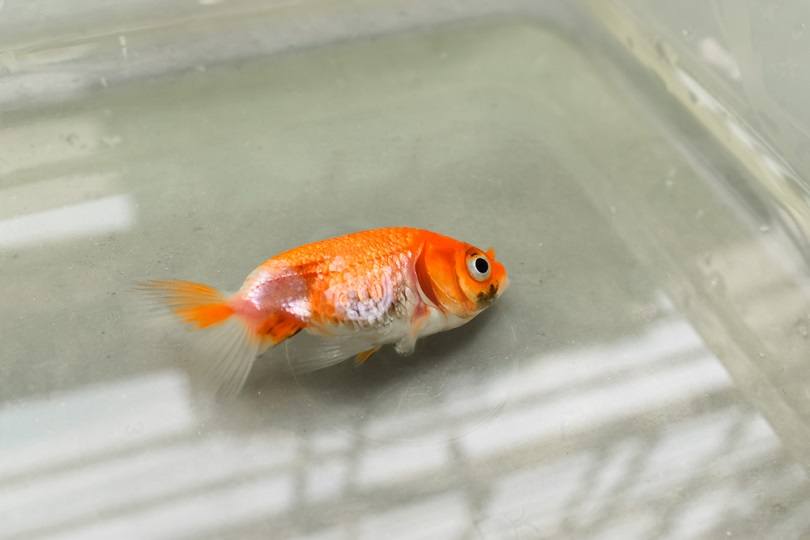Is Water Quality the Secret to a Healthy Goldfish? Facts & Suggestions

Updated on
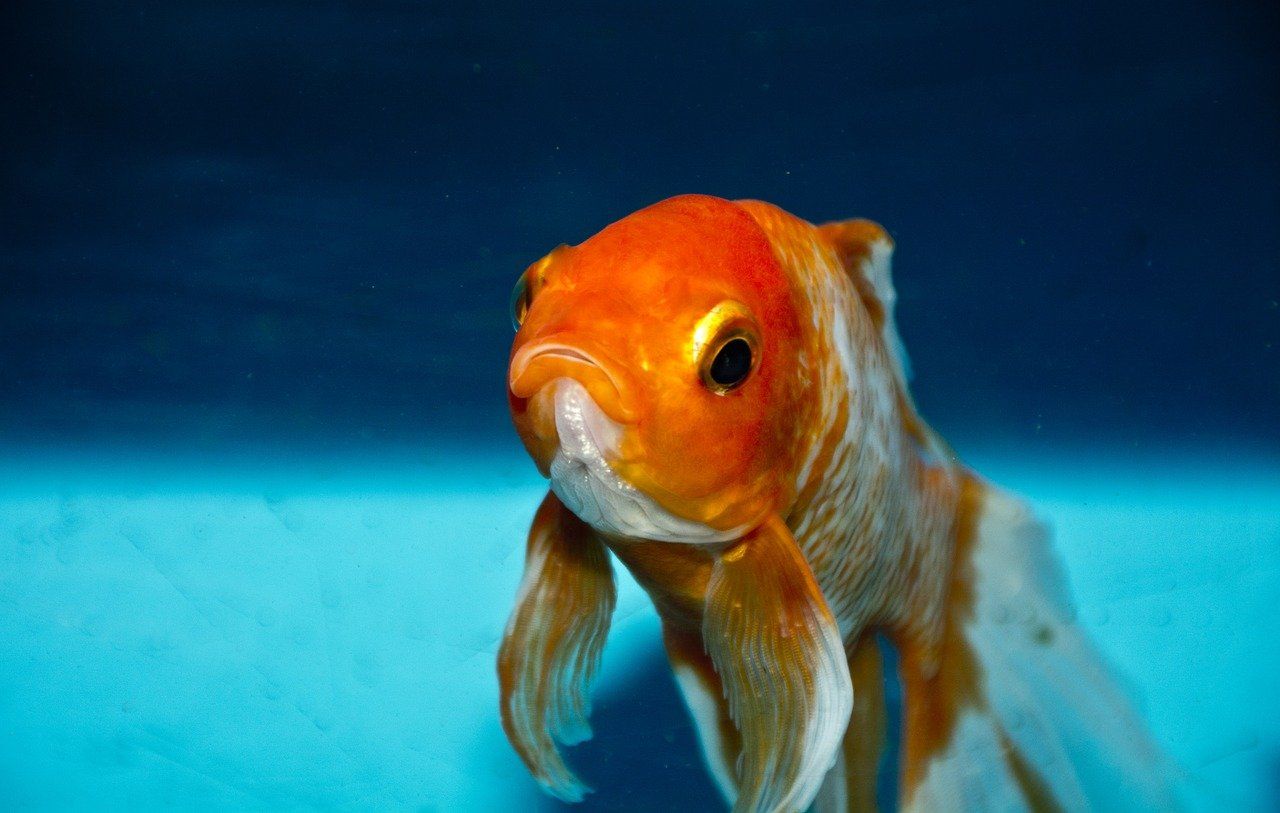
What is the secret to goldfish health? Every aquarist wants to know. Is it a special gel food recipe with some wonderful elixir of life in it?
Perhaps it’s always quarantining new goldfish to prevent disease from spreading?
Many methods have been tested over the years, and these other things can also play a very important role; however, one thing has been very significant in the well-being of goldfish: water quality. Water quality is as important to goldfish as air and oxygen are to humans.
Why Worry About Water Quality?
Without good water quality, keeping goldfish is fighting a losing battle.
You can do everything right: have the perfect size tank, feed a varied diet, have tons of aeration, and more. But if the water isn’t right, you are probably going to have some sick (or dead) fish on your hands.
Other factors can be compromised to some extent, but not water parameters. Goldfish depend as much upon good water as we humans depend upon good air.
Just imagine if you sat down at a beautiful, delicious feast with comfortable chairs, a spacious environment, and soothing music in the background, only to have the air be totally filled with car exhaust.
All of that would mean nothing to you as suddenly your lungs strain, your eyes burn, and your body is fighting to survive.
If you only had good air, you could do without a meal once in a while and give up your Hayden. That is how critical perfect water parameters are to goldfish health.
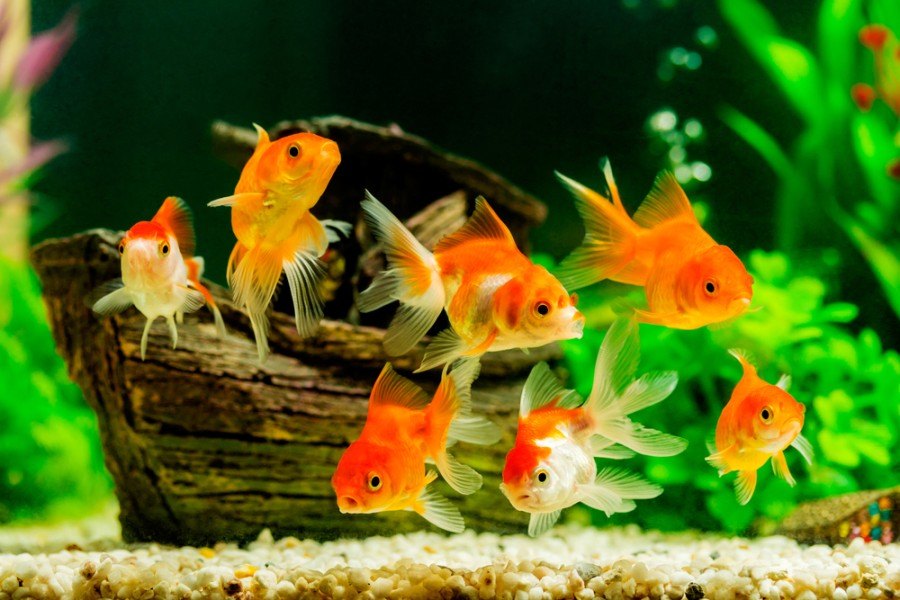
How Can I Maintain Good Water Quality Conditions?
You can start by doing regular water changes. Like any other animal, goldfish produce waste.
Interestingly enough, goldfish excrete more toxins through their gills than through their solid waste, meaning that just their breathing is enough to start polluting their water.
A cycled tank that has stable water parameters may start out a safe environment, but with an uncycled one, as the days go on, begins to get fouled up with the deadly, invisible toxin ammonia, the byproduct of goldfish.
By regularly taking out a portion of water and replacing it with clean water, you are removing this poison and keeping your goldfish safe and healthy.
Or by having a filter in your tank, the filter does the work of taking this out for you.
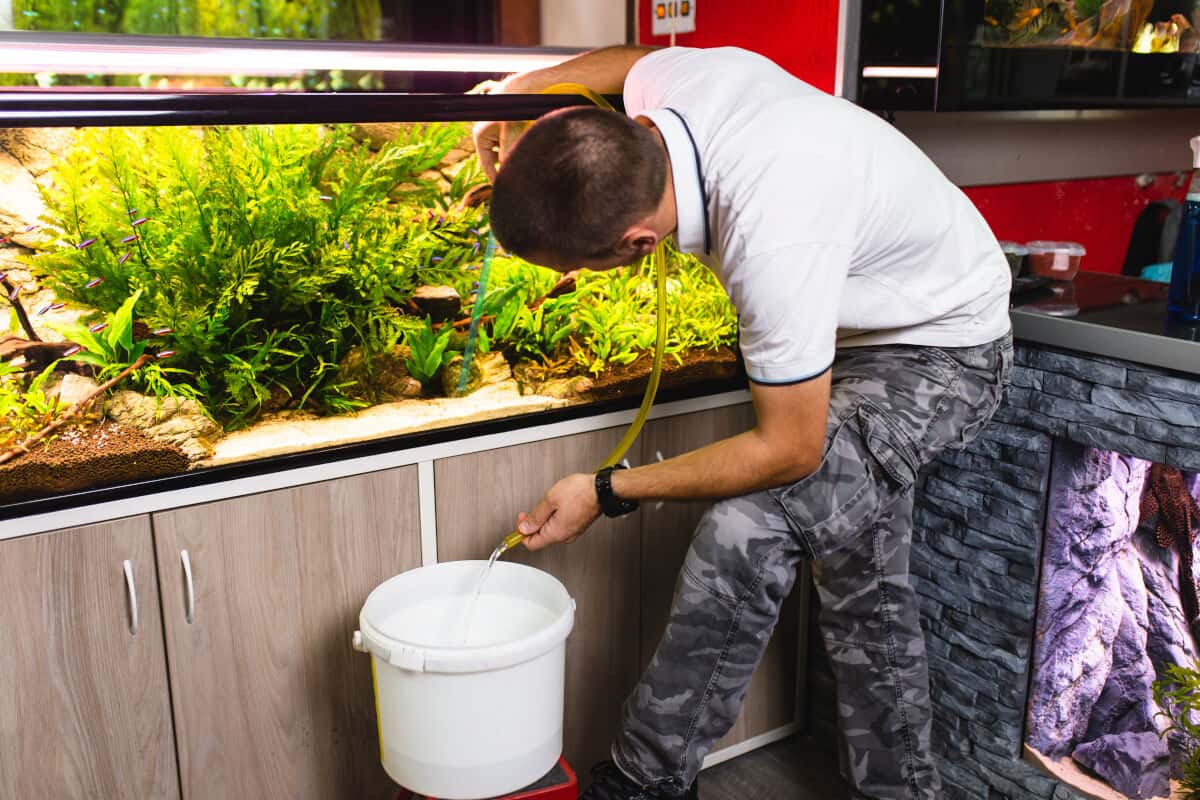
And ammonia is not the only enemy you are keeping at bay; nitrite (also dangerous) is also held back, and pH (must be balanced!) is kept in check.
A good filter can help with those as well. Keeping your water free from toxins also involves stocking your tank properly.
Only by doing a totally unrealistic number of water changes or having very powerful filtration can you keep the water conditions in your tank safe when your tank is jam-packed full of goldfish.
In general: The higher the proportion of water volume to goldfish, the easier it will be to maintain your water quality.
If you need help getting the water quality in your aquarium just right for your goldfish family, or just want to learn more on the subject (and more!), we recommend that you check out our best-selling book, The Truth About Goldfish.
It covers everything from water conditioners to nitrates/nitrites to tank maintenance and full access to our essential fishkeeping medicine cabinet!
Where Do You Start?
The most important place to begin is to test your water to ensure your parameters are safe for your fish. If you ever have a sick fish or suspect something is wrong?
The first thing to do is to test the water.
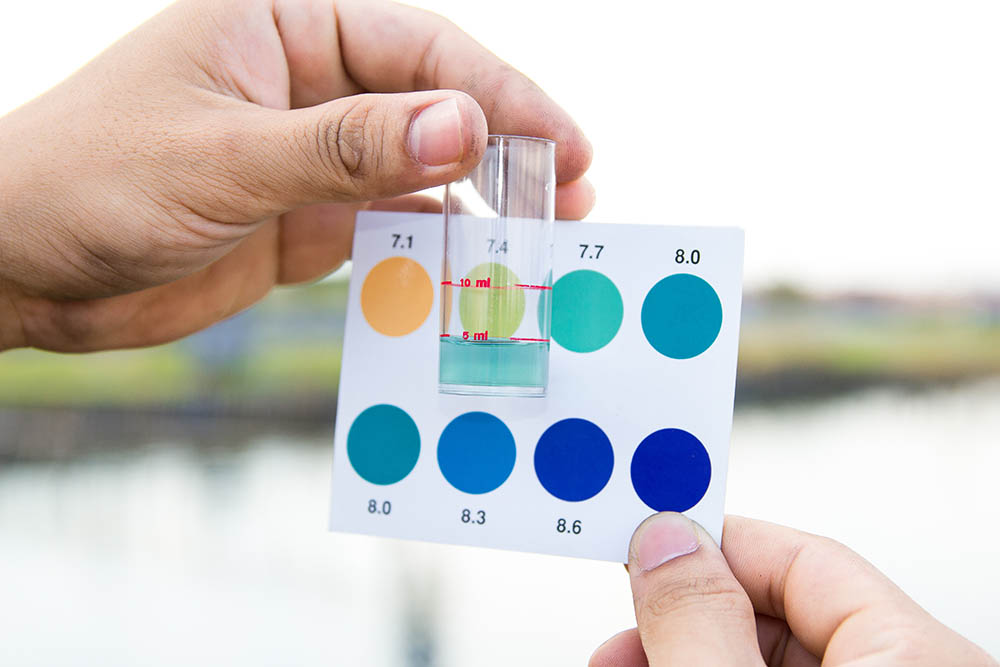
Only by ruling out water quality issues can you assume something else, like disease, is the root cause of your issue.
It often is a good idea to perform the water change AFTER you test the water. That way, you get the most accurate reading of the situation at hand.
Featured Image Credit: LUIS PADILLA-Fotografia, Shutterstock

